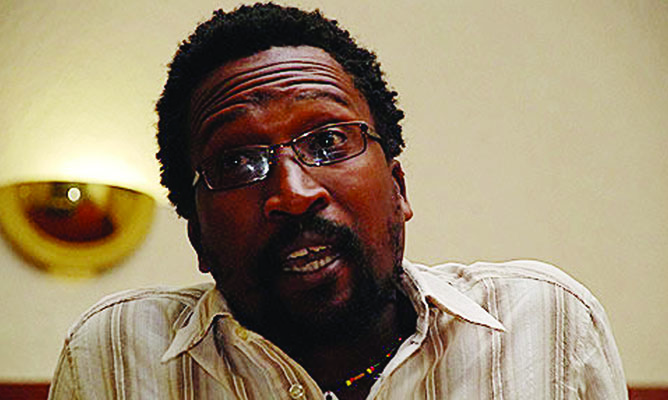
IT was recently reported that Econet Zimbabwe founding chief executive officer and now majority shareholder, Strive Masiyiwa issued a social media statement that questioned the transparency of the use of at least $10 million he/his company had donated toward alleviating the current cholera tragedy in Zimbabwe.
By Takura Zhangazha
And it’s fair enough. Where colleagues and comrades were saying or acting in order to ensure all hands were on the deck in order to at least prevent, as pragmatically possible, a further loss of lives, there are/were others that are now alleged to have sought to profiteer from the crisis.
These allegations included issues to do with the inflation of chemical “waterguard” bottles as well as medical hand-gloves.
And indeed many a social media activist went apoplectic at the possibility of this happening in the midst of such a health epidemic.
Their motivations were probably genuine but had it not been for the fact of statements attributed to Masiyiwa over and about his “donation”, they would have probably kept quiet. Or at least not been as apoplectic.
And sure enough, even the very rumour of the same got at least two (new) Cabinet ministers concerned, at least on the Zimbabwe Broadcasting Corporation television stating that they were shocked at the allegations being levelled at officials in local authorities.
The City of Harare also weighed in, with one or two stories being put online about the temporary/potential suspension of some of its senior administrative staffers.
- Chamisa under fire over US$120K donation
- Mavhunga puts DeMbare into Chibuku quarterfinals
- Pension funds bet on Cabora Bassa oilfields
- Councils defy govt fire tender directive
Keep Reading
What may have missed all good intentions at resolving the tragic crisis of an epidemic is the possibility that it all makes for good public relations and marketing, even in its worst humanitarian crisis moments, especially where it concerns allegations of misappropriation of goodwill from the private sector.
What it means is that we must immediately forego the mistakes of the private sector, or their previous intentions at profiteering from public capital (land, water, health, education and attendant State infrastructure).
I had to re-read global activist Naomi Klein’s amazing book, The Shock Doctrine. The Rise of Disaster Capitalism in order to understand what is going on.
In part one of the book, she quotes George Orwell’s novel, Nineteen-Eighty Four, wherein it states “we shall squeeze you empty, and then we shall fill you with ourselves”.
Innocuous as the statement may seem, it essentially points to a new reality where we do not read between the lines. Even if it were some sort of conspiracy to undermine the (President Emmerson) Mnangagwa regime, that on its own would not be enough.
Private capital intends to make it clear that it can run things better, especially in Zimbabwe’s national case, no matter the cost.
As far as it is concerned, it will eventually make the necessary profit, as long as necessary “curry” is favoured with those in political power.
So bring out the water bowsers from Delta Corporation and the “waterguard” chemicals from other well-wishers and we have a recipe for a corporate takeover of what should have remained public services. That is the provision of affordable, safe and usable/drinkable water, even if temporarily.
A point that for now, might not matter as much, again, it’s all hands on deck and we will or at least should ask questions after. The probability of the latter happening, however is relatively slim.
The intention is to reinvent our political and economic reality. This being where we find solutions in the benevolence of those that already have money/capital to what should be shared societal problems.
We choose to create heroes out of them in the process, while they make copious amounts of profit from the same.
What it means is that we have a potential reinvention of Zimbabwean society in the midst of an epidemic.
And depending where you are ideologically seated, it may work for a while, but the end effect is that it backfires. And then we start to look for solutions in the same ideological neo-liberal framework. That being, we should have done the same things better.
Hence it is behoove upon many an assumed progressive to denounce any form of corruption against Masiyiwa’s assumed $10 million donation equivalent in cash or kind without at once fairly questioning why and where such stupendous amounts of capital came from?
Let alone hazarding that perilous guess as to why EcoCash/mobile money and internet or social media bundles rake in (probably billions (especially in bond notes) a quarter).
It is money that stems to the greater extent from the poor who seek more convenience than they do profit, or from those that would use the same on the parallel exchange rates, domestically.
What we do know is that it appears to be open sesame for profiting out of a national disaster.
This entails putting profit on the highest possible tabernacle of either corporate social responsibility or the fact that a company or a few individuals are able to shoulder a national burden when it “mattered the most”. For a country and government as desperate as our own, this is most likely.
A critical eye as to the motivation would be most unfortunate, almost as though we would have traded ourselves off. Even if we do not know or understand it.











